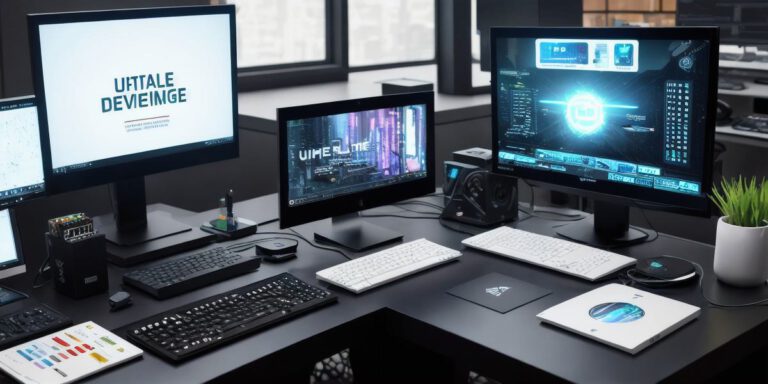Mastering Unreal Engine: The Challenges of Game Development

Unreal Engine is one of the most popular game engines out there, and it’s easy to see why. With its powerful graphics capabilities, intuitive interface, and vast array of tools and features, it’s no wonder that many developers choose to use it when creating their games. However, as with any complex software, mastering Unreal Engine can be challenging. In this article, we’ll take a closer look at some of the biggest challenges that game developers face when working with this powerful engine, and we’ll explore ways to overcome them.
The Learning Curve: A Steep One
One of the biggest challenges that game developers face when using Unreal Engine is the steep learning curve. With so many tools, features, and options at their disposal, it can be overwhelming for beginners to know where to start. Additionally, the engine itself is quite complex, with many hidden settings and configurations that can be difficult to navigate.
To overcome this challenge, it’s important to start by familiarizing yourself with the basics of Unreal Engine. This includes understanding how to set up a new project, create basic assets, and use some of the most commonly used tools and features. From there, you can gradually build upon your knowledge and explore more advanced topics as needed.
Performance Issues: A Common Problem
Another challenge that game developers face when working with Unreal Engine is performance issues. The engine is designed to handle complex graphics and physics simulations, but it can struggle with less demanding games or those with a lot of objects on screen. This can lead to slow load times, stuttering gameplay, and other issues that can be frustrating for players.
To overcome this challenge, it’s important to optimize your game for performance. This includes reducing the number of draw calls, minimizing the use of complex shaders, and using techniques like level of detail (LOD) and occlusion culling to improve performance. Additionally, you can use tools like profiling and benchmarking to identify areas where your game is struggling and make targeted improvements.
Collaboration Challenges: Working with a Team
Finally, one of the biggest challenges that game developers face when working with Unreal Engine is collaboration. With so many different people involved in the development process, it can be difficult to keep everyone on the same page and ensure that everyone is using the same tools and techniques. This can lead to confusion, miscommunication, and other issues that can slow down the development process.
To overcome this challenge, it’s important to establish clear communication channels and protocols within your team. This includes setting up a shared project management system, establishing regular check-ins and meetings, and making sure that everyone has access to the same resources and tools. Additionally, you can use tools like version control and code review to ensure that everyone is working with the same codebase and that changes are properly documented and reviewed before they are merged into the main codebase.
In conclusion, mastering Unreal Engine can be challenging, but it’s well worth the effort for game developers who want to create stunning, immersive games. By starting with the basics, optimizing your game for performance, and establishing clear communication protocols within your team, you can overcome the biggest challenges that this powerful engine presents and create truly exceptional games. So if you’re ready to take your game development skills to the next level, it’s time to start exploring Unreal Engine and see what it has to offer.








